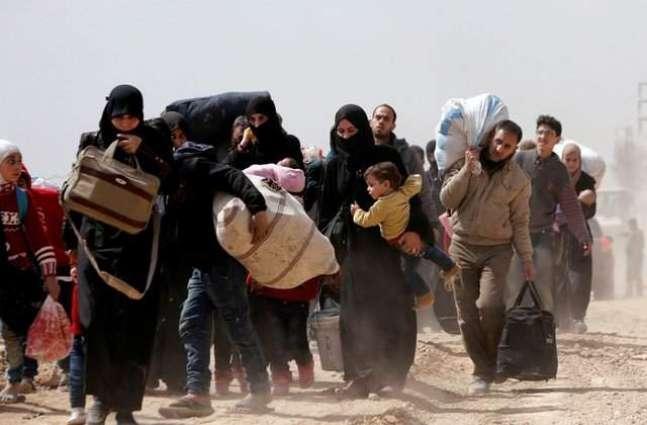Civilians used as ‘human shields’ by YPG in Afrin, says UN
GENEVA

The United Nations said March 16 there were “alarming reports” that Kurdish militants are blocking civilians from leaving the Syrian enclave of Afrin faced with a looming siege, and could be using them as “human shields.”
The U.N. rights office said it had been receiving “deeply alarming reports from Afrin in northwestern Syria about civilian deaths and injuries due to airstrikes and ground-based strikes.”
Spokeswoman Ravina Shamdasani in particular decried “reports that civilians are being prevented from leaving Afrin city by Kurdish forces ... [and] are being held to be used as human shields.”
Turkish-led forces launched an air and ground operation on Jan. 20 to clear the Afrin region in northern Syria of Syrian Kurdish People’s Protection Units (YPG) militants.
Syrian Observatory for Human Rights said March 15 more than 30,000 people had fled the city in 24 hours, with civilians still trying to slip out on Friday before Turkish-led forces cut the last exit road.
“Hundreds of thousands of civilians are at risk including those recently displaced from other areas captured by Turkish-led forces,” Shamdasani said.
She said her office had been informed that “only those civilians who have contacts within the Kurdish authority or the Kurdish armed forces have been able to leave.”
But she stressed that “even they have to make a treacherous path through, risking shelling and explosive hazards only to reach checkpoints manned by government-backed armed groups where they may only be permitted to cross after paying money.”
Shamdasani said civilians on the ground were expressing fear over their safety, due among other things to militants placing rocket launchers in residential areas.
“We are deeply concerned about the high risk of civilians, who are effectively trapped, being killed, injured, besieged, used as human shields or displaced as a result of the fighting,” she said.
“We remind all parties to the conflict that they must permit civilians wishing to leave combat areas to do so in safety, and to ensure the protection of those who remain,” she added.
















